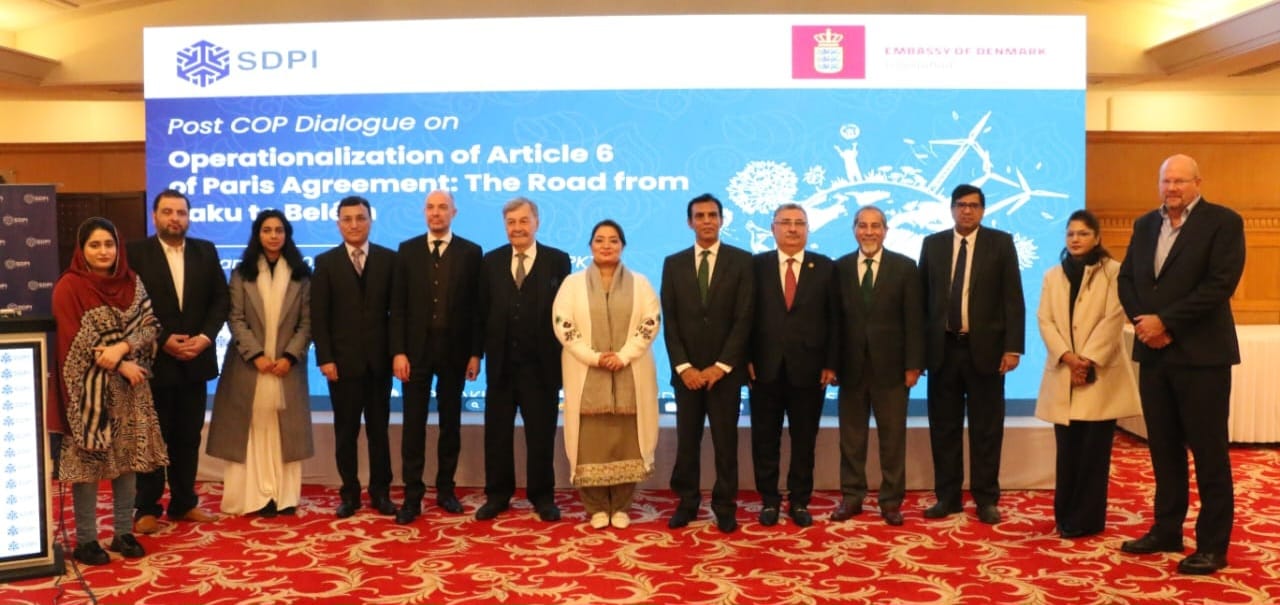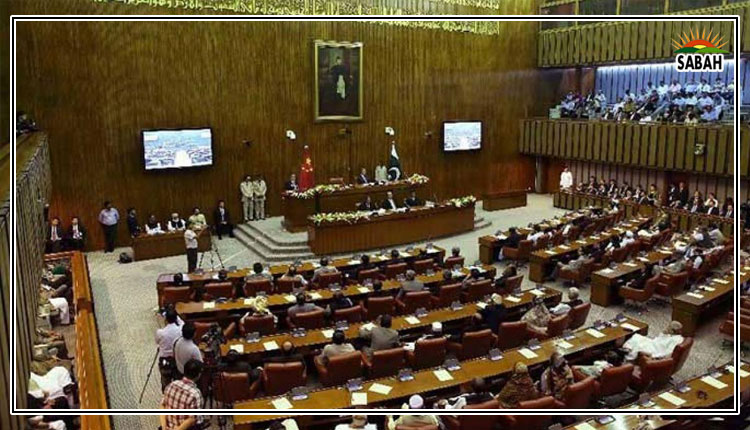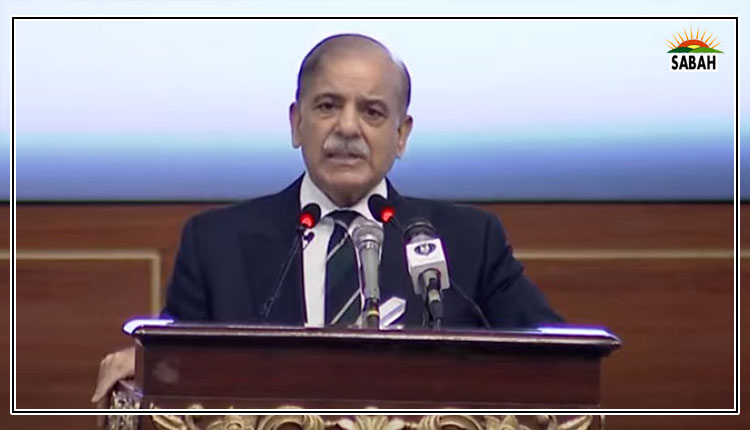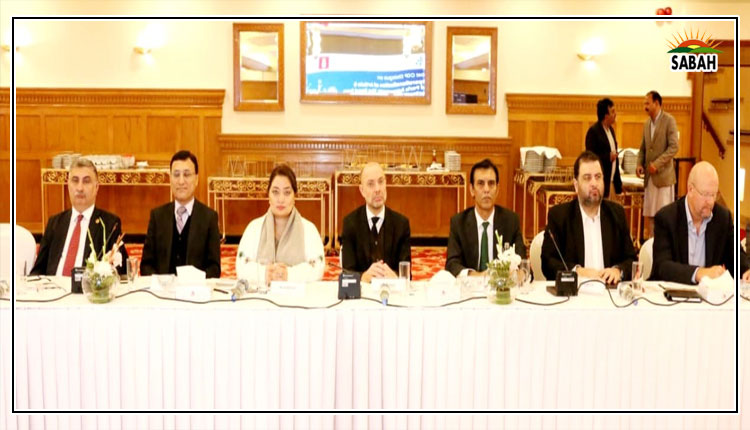Pakistan to lead regional carbon market vision, says PM’s aide Romina Khurshid Alam amid underscoring climate action blueprint
ISLAMABAD, Jan 06 (SABAH): Romina Khurshid Alam, Prime Minister’s Coordinator for Climate Change and Environmental Coordination on Monday said Pakistan is poised to become a regional leader in carbon trading and climate resilience.

The Sustainable Development Policy Institute (SDPI) in collaboration with the Embassy of Denmark hosted the policy dialogue titled “Post COP Dialogue Operationalization of Article 6 of Paris Agreement: The Road from Baku to Belem”. “Article 6 presents an unprecedented opportunity to activate carbon markets and lay the foundation for sustainable development and enhanced resilience,” she stated, emphasizing Pakistan’s readiness to adopt international carbon trading guidelines.
Romina Khurshid Alam praised Pakistan’s team effort during COP29 in Azerbaijan, which led to significant recognition and acknowledgment on global platforms. “Pakistan stands at the cusp of leading the region in carbon trading,” she said, highlighting the country’s proactive approach to aligning with international frameworks. Despite challenges like capacity constraints and regulatory shortcomings, she underlined the unique opportunities in forestry, renewable energy, and other sectors.
The PM’s aide emphasized the necessity of rigorous Monitoring, Reporting, and Validation (MRV) systems for effective carbon trading and assured stakeholders of Pakistan’s commitment to ensuring transparency. “We are aggressively collaborating with provinces and legislative assemblies to operationalize Article 6 and integrate grassroots participation in carbon trading initiatives,” she explained.
Romina Khurshid Alam called for robust South-South Cooperation to ensure no nation is left behind in achieving carbon neutrality. “We welcome engagement from all stakeholders, including international partners, provincial governments, and private entities, to shape Article 6 operationalization,” she noted. Her remarks also highlighted the federal government’s unwavering support for provincial initiatives and coordination with global organizations.
Danish Ambassador Jakob Linulf, a key partner, underscored the collaborative role of Denmark and SDPI in creating a conducive environment for climate action. “Denmark is proud to work closely with SDPI to help Pakistan attract foreign investments in addressing climate change,” he said.
Ambassador Linulf said the efforts to mitigate climate change impacts and global warming would only succeed if the government of Pakistan secured a conducive environment for climate action.
Denmark and Pakistan, he said are supporting each other in making their societies more resilient. However, the framework under which both governments cooperate is guided by meetings held at the conference of the parties (COPs) and forums under the umbrella of the United Nations.
The next climate regime would be based on trading on carbon emissions reduction enabling funding for climate adaptation, he said, adding, “Climate Change mitigation will rely on the internal climate action efforts that every individual will contribute. Climate action starts with yourself as each one has to take steps like avoiding open garbage dumping, ensure tree plantation, select eco-friendly consumption practices, focus on RE, power solutions, energy-efficient buildings for less power consumption, and securing a long-term environment for foreign direct investment through carbon emissions trading.”
Dr. Abid Qaiyum Suleri, SDPI Executive Director, underscored the need for transparency and robust monitoring in carbon markets. “We must establish independent accreditation bodies and align with international frameworks like the Carbon Border Adjustment Mechanism (CBAM),” he stated.
Suleri, highlighted key challenges in carbon trading, emphasizing the need for transparency and the establishment of a global carbon credit registry. He stressed the importance of implementing Articles 6.2, 6.4, and 6.8 of the Paris Agreement, which require corresponding adjustments for host countries.
Dr. Suleri proposed that carbon credits from initiatives like fossil fuel subsidy removal, renewable energy promotion, and clean cooking solutions could be leveraged for adaptation funding. He called for independent accreditation and certification bodies to facilitate compliance with emerging trade regimes like CBAM.
Zulfiqar Younas of the Ministry of Climate Change (MoCC) announced the launch of a customized carbon registry by February, marking a key milestone in operationalizing Article 6. The registry aims to facilitate transparent carbon credit trading, enabling Pakistan to tap into international carbon finance markets.
Ambassador Shafqat Kakakhel, Chairman BoG SDPI, stressed the importance of shifting the energy sector from fossil fuels to domestically available renewables like biomass, water, solar, and wind.
Speakers at the dialogue highlighted Pakistan’s progress in leveraging COP29 outcomes. The €20 million SPAR6C initiative, funded by the German government, is preparing Pakistan and other countries to implement Article 6 through project development in green energy, transport, forestry, and waste management, said Ahsan Karman, a senior consultant and member Climate Change Authority. He also announced the preparation of 13 project ideas in collaboration with provincial governments.
Andrew Bailey Managing director, BASF and representative of OICCI reiterated the chamber’s commitment to supporting Pakistan’s climate action goals. The private sector remains a critical partner in achieving carbon neutrality.
Meanwhile, Dr. Arif Goheer of GCISC pointed out the financial gaps in meeting NDC targets and emphasized the private sector’s role in bridging them.
In his vote of thanks, Dr. Shafqat Munir, Deputy Executive Director,
SDPI thanked partners for their contributions, stating, “Our readiness is critical to reaping the benefits of international carbon trading mechanisms. However, Pakistan needs to be conscious about the nature and implications of other climate finance instruments that will be available amid complete rollout of carbon markets.”












